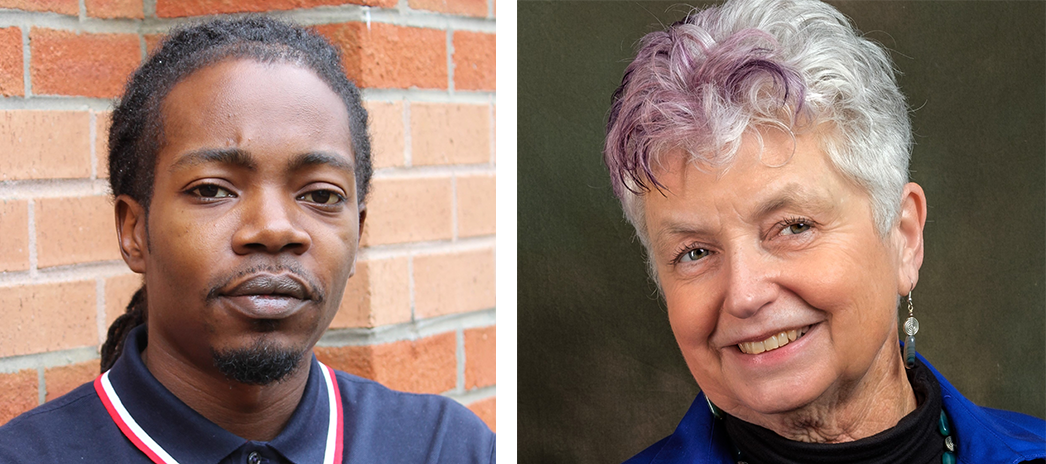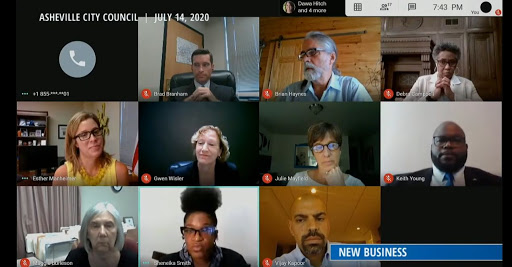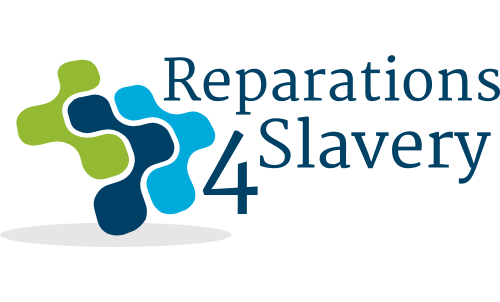Interview with Robert Thomas & Phoebe Kilby

How did the Asheville community work together to get the reparations resolution passed?
Robert Thomas:
We would not have succeeded without the support of the networks that were created and the massive amount of assistance from volunteers. I also call upon the ones that stood before us, our ancestors, who've laid the foundation that this generation can now build upon.
Phoebe Kilby:
A few years ago, local activists started the Asheville Racial Justice Coalition (RJC) – this was after Michael Brown was killed in 2014. It now includes over 15 organizations, among them the YWCA, NAACP, and ACLU. The Asheville Coming to the Table Local Group became a member in 2018. There was a concern in Asheville about continuing police abuse and brutality that needed to be addressed. The coalition has convinced the local police department to mandate officer de-escalation training, as well as adopt a policy requiring a written consent before they can search somebody's vehicle.
Working together was key – as a small group, our Coming to the Table members could never have done this by ourselves. When a grant opportunity became available, the YWCA applied and the RJC was able to secure a $300,000 two-year grant from the Z. Smith Reynolds Foundation. When it came to allocating grant money, the coalition ultimately decided it was most important to create a community organizer position and pay that person a living wage plus good health insurance, so the YWCA hired Robert Thomas. He is a true phenomenon here in Asheville.
The first section of the resolution outlines the harms that have been inflicted in Asheville. What should people know about Asheville’s history?
Robert Thomas:
When I present our history, I start in 1868 with the building of the railroad system here, with the passage of the Black codes. African Americans here were being arrested for minor infractions, like, “not being employed.” They were then forced into building this railroad system, which greatly expanded the economic boom here in Buncombe County. Oppression of Black people continued all the way up through urban renewal, red lining, block busting, predatory lending. While this is happening, white people are subject to an entirely different set of policies. Think of the unacknowledged governmental assistances white people have received, through programs like Affirmative Action and things like the Federal Housing Authority policy, which provided low cost loans to white home buyers starting in the 1930s. We have a deep history here after slavery. You can see how this history directly leads to the situation that people of color are in now. And I show this history to really drive home why reparations are needed.
Now, many non-profits have been called in to help solve these problems. And, working together has given us the numbers we need to have a seat at the table. But, nonprofits are structured in a certain way; they are structured to treat the fish, maybe some even treat the lakes, but none of them are structured to treat the groundwater. And what I'm trying to do here is create a system of repair, a plan that addresses the groundwater – and that’s poverty.
What does generational poverty look like in Asheville?
Robert Thomas:
Asheville has the fifth worst opportunity/achievement gap in the nation, as far as Black people are concerned. And we have all types of metrics, all types of data, whether you're looking at the social determinants of health, whether you're looking at the wealth gap in Asheville, whether you're looking at the average yearly income in Asheville, which is around $56,000 for an average white individual versus about $28,000 for a Black individual. There are so many other things I could list: Black businesses we lost during urban renewal, the massive amount of land we lost. Asheville lost more Black-owned land through urban renewal than any other city in the nation. We’re not looking for equality here; we’re looking for equity. And that's what this resolution is about.
Who has been at the table in negotiations for the resolution?
Robert Thomas:
No individual or small group has the power to represent a whole population of people here in Asheville. The people impacted need to be brought to the table and their voices need to be uplifted and supported. My job is to help guide that process so that the committee is comprised of representatives of Black neighborhoods in Asheville with support from an administrative team.
I will not be creating a plan; I'm simply guiding the community through the door so that they can ask for what they need directly. My job is to uplift the community, not to be the voice of the community or figure things out for the community. We have several different Black communities here in Asheville and each community needs something different; there is no one size fits all. So, we are calling upon the communities to elect their representatives.
Were any of the African American city council members involved in drafting the resolution?
Robert Thomas:
Yes, it was a collaborative effort. We worked together to develop the political will, the political capital to get it done. My organization and several other organizations provided pressure in the form of emails and phone calls and directed community members to do the same. We had over a thousand people just within our organizations call or email our elected officials or show up online at the city council meetings. Dr. Dwight Mullen, professor of political science at University of North Carolina Asheville, also played a major role in the creation of the resolution.
Why is the resolution so open-ended?
Robert Thomas:
Well, we left it open-ended on purpose because we didn't want to give our local government boxes they could check off and then say, “Okay, now reparations are done.” However, they can begin the process of addressing policies on a systemic and a structural level, policies that have kept us from accruing generational wealth, from escaping oppression and poverty.
How does the Asheville resolution tie into the national movement for reparations?
Robert Thomas:
The resolution is a starting point. We hope many other cities and counties around this nation will adopt similar resolutions to fit their own communities so that we gain national awareness around reparations. Ultimately, local government does not have the resources and finances to truly enact reparations. To do that, we need to break through the state ceiling and the federal ceiling; it would take around $17 trillion worth of funding to actually be able to address the problem of generational poverty and reverse some of the systems that have kept African Americans down for so long.
What happens next?
Robert Thomas:
I've already been granted authority from the Asheville Office of Equity and Inclusion to start organizing. A large part of it is going to be educating the Black community here about our history. Just as a lot of white people aren't aware of white privilege, a lot of Black people are unaware of the systems that keep them oppressed. We need education on what reparations means and education on different ways to address the harms.
Reparations means to restore to original wellbeing or to repair damages; to facilitate this process, we’ll need a massive outreach effort. There are only two Black communities here that have a committee structure such as president, vice president, treasurer, and secretary, where they could immediately elect somebody to represent their community on this committee. So, we will bring people together, provide education on our history and begin to determine the path forward.

